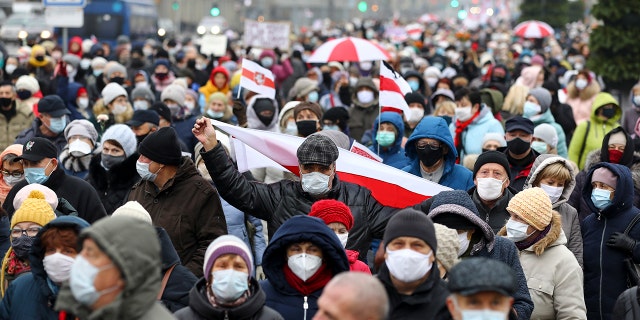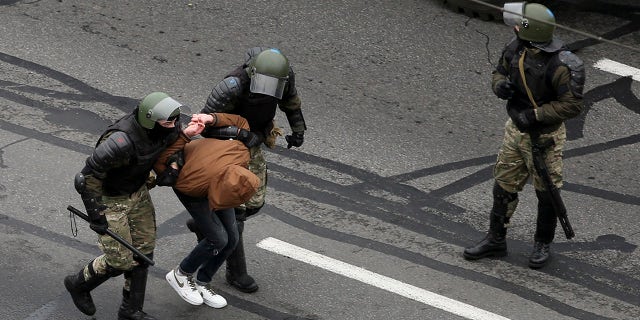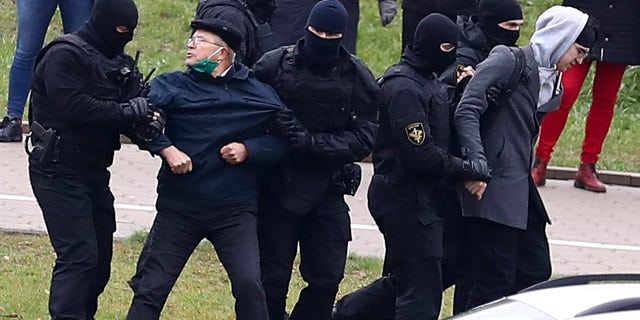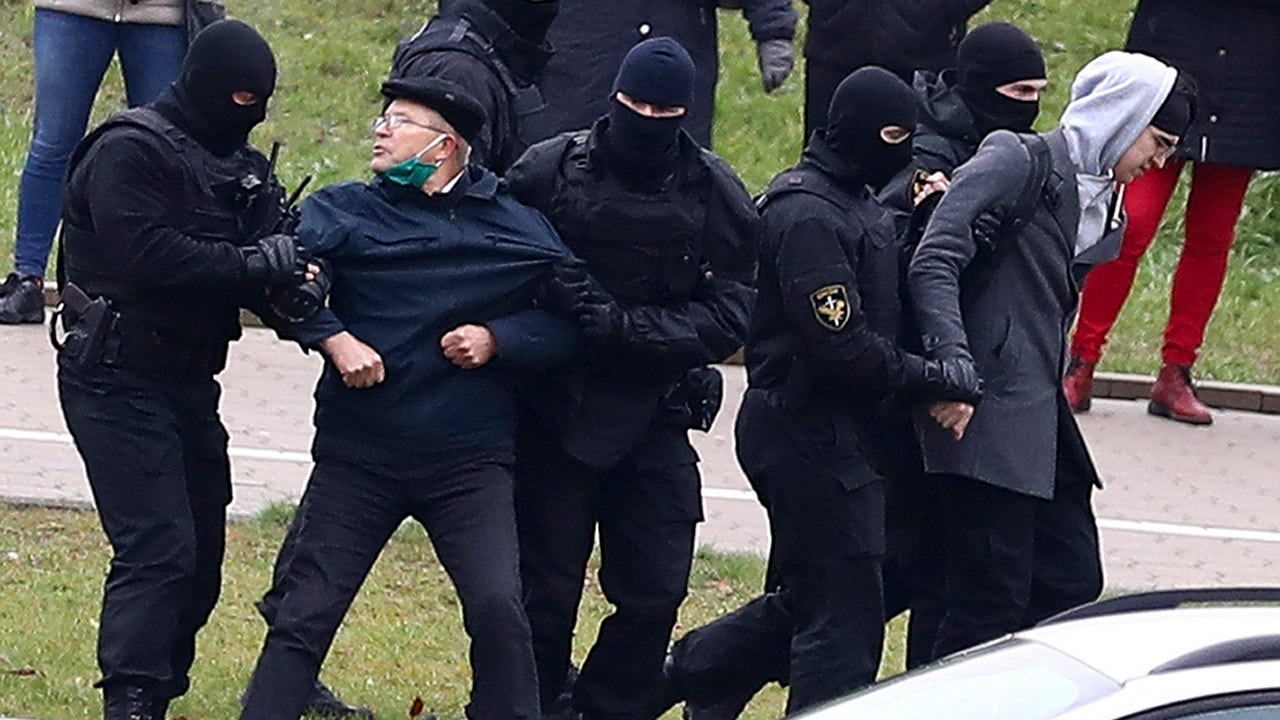Legacy of socialism? State violence continues in Belarus
In Belarus, government security forces continue to abuse, arrest, and torture pro-democracy protesters as mass demonstrations became an almost-daily feature of life in the country after authoritarian President Alexander Lukashenko won his sixth term in a widely disputed election more than 100 days ago.
A recent video shared online captured just one instance of the government’s violent crackdown on dissent, as state police in balaclavas beat protesters in a supermarket in Minsk using batons.
WARNING: GRAPHIC CONTENT
UK, CANADA SANCTION BELARUS OVER ‘RIGGED’ ELECTION, TREATMENT OF PROTESTERS
In Belarus, 70% of workers are employed by the state, according to The Heritage Foundation’s 2020 Index of Economic Freedom. Their president has been in power for more than 25 years, ever since the Soviet Union fell, and his prior job was managing a socialist collective farm.
Experts on socialism say authoritarianism is a natural outgrowth of socialism, because, in order for the government to dictate everything in economic life, it must exert a lot of control — control that can also be used to keep a leader in power for decades.
“Belarus hasn’t really escaped its Soviet past,” Alexis Mrachek, a research associate on Russia and Eurasia at the Douglas and Sarah Allison Center for Foreign Policy, told Fox News. “Socialism very much still has a presence in Belarus.”

Belarusian pensioners wearing face masks to protect against coronavirus attend an opposition rally to protest the official presidential election results in Minsk, Belarus, Monday, Nov. 16, 2020. Crowds of retirees marched down the streets of the Belarusian capital on Monday, demanding the resignation of the country’s authoritarian president and to end the government crackdown on peaceful protesters. (AP Photo)
The European Union said Thursday it’s planning a new round of sanctions against Belarus that will target businesses, noting that Lukashenko’s government has not stopped despite the bloc’s earlier efforts to sanction the country’s president and more than 50 officials over their role in the protest crackdown.
European foreign policy chief Josep Borrell said EU member nations agreed in principle on the extra measures not only to target individuals but also “institutions, entrepreneurs and firms” as a response to the “brutality of authorities.”
According to the Heritage Foundation, the former Soviet Republic has one of Europe’s worst human rights records. Industries and state-controlled agriculture are not competitive, and the country increasingly relies on Russia for its energy supplies.
KREMLIN DENIES PUTIN SUFFERED COUGHING FIT DURING CORONAVIRUS CONFERENCE
Mrachek told Fox News the lack of other foreign investment in Belarus is a result of Lukashenko’s close ties with Russian President Vladimir Putin. Widespread corruption in the government and police force also dissuade foreign companies from entering the market, thus solidifying Belarusians’ reliance on the state for a way to earn a living.

Belarusian riot police a demonstrator during an opposition rally to protest the official presidential election results in Minsk, Belarus, Sunday, Nov. 15, 2020. (AP Photo)
More than 2,000 retirees marched Monday in the Belarusian capital of Minsk demanding the resignation of Lukashenko and an end to the brutal police violence inflicted against opposition supporters. Pensioners carried portraits of Raman Bandarenka, a 31-year-old opposition supporter who died last week after reportedly being beaten by security forces.
MITCH MCCONNELL, MITT ROMNEY RESPOND TO TRUMP’S PEACEFUL TRANSFER OF POWER REMARKS
Protests have roiled Belarus ever since the Aug. 9 election handed Lukashenko a crushing victory over his widely popular opponent Sviatlana Tsikhanouskaya. She and her supporters refused to recognize the result, saying the vote was riddled with fraud.
Authorities have cracked down hard on the largely peaceful demonstrations – the largest of which attracted up to 200,000 people. Police used stun grenades, tear gas, and truncheons to disperse the rallies and detained thousands, beating many of them brutally.

Belarusian riot police detain demonstrators during an opposition rally to protest the official presidential election results in Minsk, Belarus, Sunday, Nov. 15, 2020. (AP Photo)
According to human rights advocates, over 19,000 people have been detained since the election. At least four people are reported to have died as the result of the crackdown.
“Tsikhanouskaya could be a symbol of hope for Belarus,” Mrachek said, adding that she has already met with French President Emmanuel Macron, German Chancellor Angela Merkel, as well as leaders in Denmark and Sweden, to facilitate diplomatic relations and pave the way for more open communication with the West. “In turn, Lukashenko is getting more desperate and sending these security forces out.”
Police didn’t interfere with the march Monday but harshly dispersed a demonstration in Bandarenka’s memory on Sunday, using stun grenades, tear gas and clubs and beating up protesters in shops and restaurants where they were hiding from the crackdown.
CLICK HERE TO GET THE FOX NEWS APP
The Interior Ministry said over 700 people were detained Sunday across the country, while the Viasna human rights center put the figure at 1,291.
Fox News’ Maxim Lott and The Associated Press contributed to this report.

